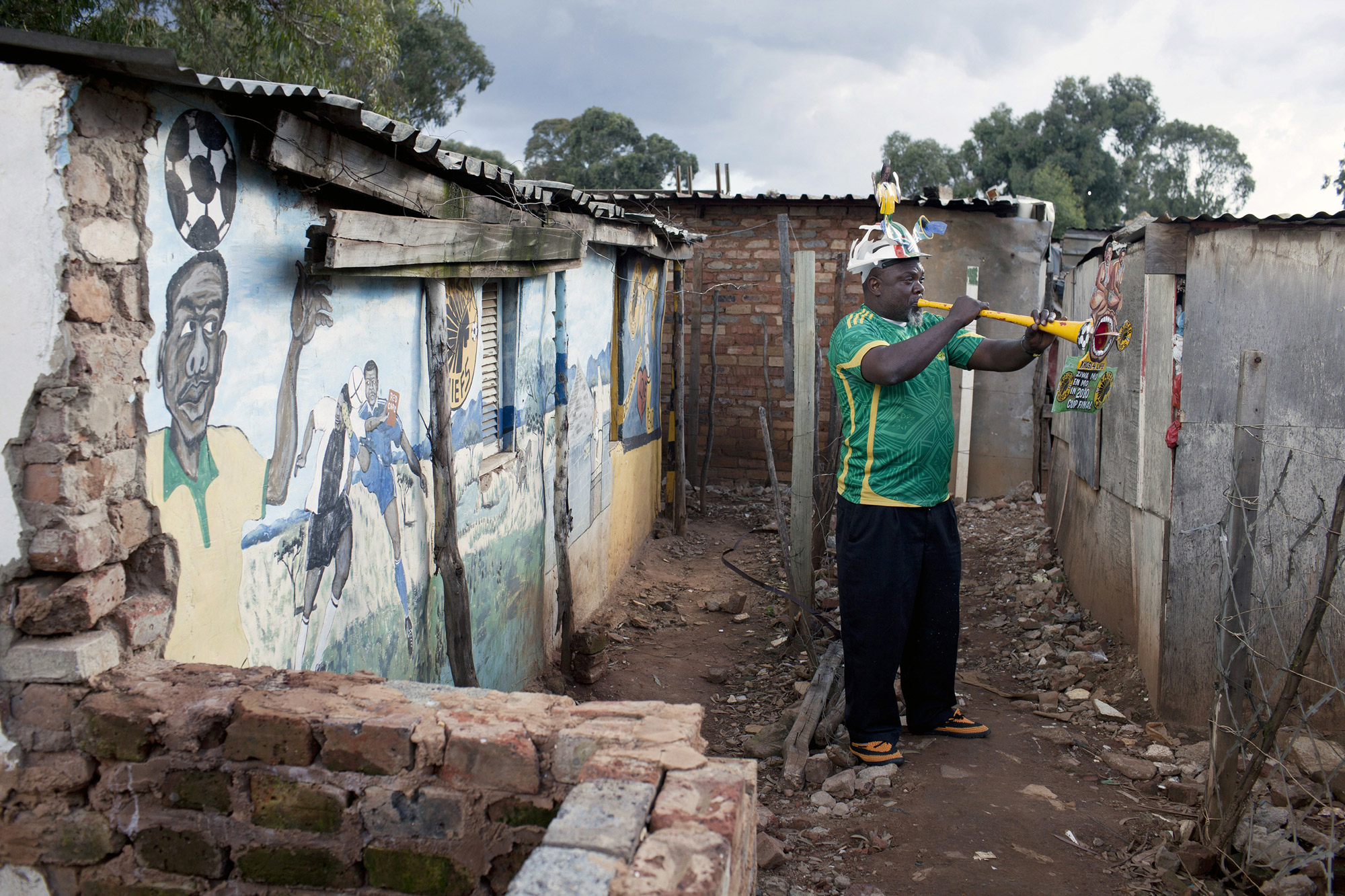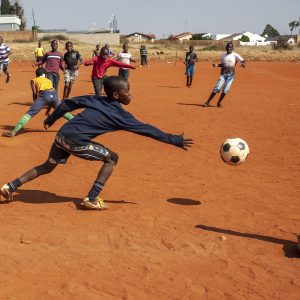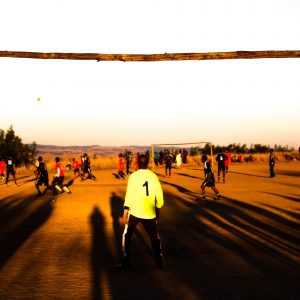What the return of football could do for SA
Almost 150 days after abruptly pausing for Covid-19 and lockdown, South African football will be back. The beautiful game could give the depressed country some reprieve and an escape.
Author:
1 August 2020

“I will breathe a huge sigh of relief when the first match kicks off. It will not just be any sigh, but a sigh of great relief,” says Thulani Ngwenya with a chuckle. It says a lot about Ngwenya’s mental resolve and dedication that the South African Football Association’s (Safa) compliance officer hasn’t lost his sense of humour – or his sanity – with everything he has endured personally and professionally in this period.
Ngwenya faced the brunt from an angry public as the “face” of the process to ensure that football safely resumes in South Africa even though Covid-19 infections are growing exponentially each day. He was caught in the middle of petty politicking by Safa and the Premier Soccer League (PSL), and even received death threats.
“The whole process has been strenuous,” said Ngwenya. “It has demanded a lot, physically and emotionally. There was a lot of research that we needed to do, and there was a lot of expertise that we sought. I am glad that all the work that we put in will now come to fruition with the return of football.
“It has been a roller-coaster ride of emotions and this process took a toll on my family and colleagues. There has been a lot of misrepresentation, with people looking at me like I was the stumbling block. But everything we did, we did to ensure the safety of the players and everyone involved. It also must be understood that we were venturing into the unknown because this hasn’t happened before, there was not much to reference it with. I and my brother Lee Pillay from the NSL [National Soccer League] worked closely on this. It wasn’t just me working on this – it’s just that I might have been the ‘face’ of it. There were other people, including Lee Pillay and Michael Murphy.”
Related article:
On 8 August, the long wait will come to an end after 145 days without professional football in South Africa. The Absa Premiership and the Nedbank Cup in top-flight football, along with the GladAfrica Championship in the first division, will all be finished in Gauteng. The 32 teams from the two divisions will be housed in a biologically safe environment (BSE) while playing in various stadiums across the province that has become a hotspot for the virus in the country.
What caused the delay
In the days without football, or any other sport for that matter, South Africans were looking at a far more depressing scoreboard – that of the growing number of Covid-19 infections and the resultant deaths. The rising numbers that Minister of Health Zweli Mkhize announced each night made the idea of 22 players chasing a ball around look miniscule in the greater scheme of things.
In July, while Ngwenya and company were putting the final touches to the project to ensure the safe return of football, the infections were growing by the thousands each day. At the time of publication, there are more than 480 000 people who have tested positive for Covid-19 and the death toll exceeds 7 800.
“What caused the delay [in the return of football in the country] was that there was a lot of uncertainty,” Ngwenya said. “I have heard some people saying that we should have looked at what they were doing in Europe and adapt it here, but it wasn’t that simple. For starters, their numbers were either steady or declining while ours are growing. They are also in summer and it is winter here.
“In England, for instance, the players were based at home and they were doing tests weekly. We don’t have that luxury because of the backlog in testing. Our players will also be based in a bubble, so the situation is slightly different. We had to be cautious with what we do. We did everything for the wellbeing and livelihood of the players. I have to commend the doctors of the clubs – they have been very helpful in this process.”
There will be two tests conducted before players enter the biologically safe environment. The first will be done just before they enter the “big bubble” and the second will follow 48 hours before they enter the main BSE where they will be based. The players will be screened daily during their time in the BSE, and only an emergency will allow one to leave the environment before the end of the season.
Impact of football’s return
With death and depression holding a vice grip on South Africa, a distraction of any kind could be beneficial to the mental wellbeing of those who worship at the altar of the beautiful game. “This announcement will assist in lifting the mood of the country and also in mitigating some of the challenges faced by our country and the global community,” PSL chairman Irvin Khoza said.
Khoza is fond of talking about the impact football has on South Africa’s “happiness index”. That index is at an all-time low with the pandemic that is wreaking havoc on every sphere of life, greedy politicians who are using this crisis to fill their pockets some more, and a lockdown that has taken away many liberties from citizens.
In a time where people need love, a hug or spending time with family, most of that is discouraged with a lockdown that’s banned social gatherings and touching that can spread the virus. In the absence of many things that bring us joy, football will be a welcomed escape in a country where the beautiful game reigns supreme in attention and support.
Related article:
“The remarkably long history of football in South Africa may explain the people’s love affair with the game,” said Peter Alegi, author of Laduma! Soccer, Politics & Society in South Africa and professor of history at Michigan State University.
“The first documented matches (between white teams) took place in the Cape and Natal in the 1860s. By the 1930s, the game had become popular in urban black, Coloured, Indian communities, so much so that even famous figures like Mohandas Gandhi and Chief Albert Luthuli were involved in South African soccer administration. However, due to segregation and apartheid, football’s organic development in the twentieth century was severely stunted.
“Many local footballers, officials, and fans defied apartheid by supporting clubs and competitions of the South African Soccer Federation (formed in 1951), the South African Soccer League (1961), and then the National Soccer League (1985). The exclusion of racist South Africa from Fifa (1961-1992, with a one-year reprieve in 1963) was one of the earliest international sanctions against Pretoria. In other words, South Africans’ simple desire to enjoy a football match in the context of apartheid’s inhumanity fuelled a quasi-religious obsession for the game that assisted the broader struggle for political and cultural liberation.”
What football looks like under Covid-19
“Have you ever entered an empty stadium? Try it. Stand in the middle of the field and listen. There is nothing less empty than an empty stadium. There is nothing less mute than stands bereft of people,” Eduardo Galeano wrote in Football in Sun and Shadow.
This is the reality that will greet the return of football with no supporters in the stands due to Covid-19 restrictions. In Europe, some leagues used graphics and background noise to mask the emptiness and unfamiliar silence. “I was born and raised in Italy and I just witnessed my club, Juventus, win a record-setting ninth domestic league title in a row,” said Alegi.
Related article:
“Watching this extraordinary event on television by myself was strangely unfulfilling. At the end of the match, Cristiano Ronaldo and his teammates and coaches celebrated on the pitch in an empty stadium. Instead of the roar of the crowd, the only audible sounds were those of the squad’s shouts and chants. There are few things in life more melancholic than a party with no guests. I’m concerned that the pandemic may end up providing a model for football’s final transformation from the most popular human ritual ever invented into just another internet-like experience in which we are alone, together.”
Instead of stadiums, football fans have gathered virtually to cheer for their teams. This online “community” allows them to be together without being together. They will continue to do so when the Nedbank Cup semifinals kick off the return of football in the country on 8 August when Baroka FC take on Bloemfontein Celtic followed by Mamelodi Sundowns’ clash with Bidvest Stadium in a double header at Orlando Stadium. “I am very excited that we will finish the season,” said Ngwenya, who is also Bafana Bafana’s team doctor.
“What people don’t understand is that I wanted football to finish. CAF has released the dates [for the 2022 Africa Cup of Nations qualifiers]. We have Ghana next, and their players are based in Europe so they have been in action. It’s important that our players are also active, because if that doesn’t happen they will hammer us.”
There are certain things that Covid-19 will never change, even though it has forced us to relook many aspects. One of those is the beauty of watching football live at the stadium. Even though it won’t happen for the remainder of the season, when supporters are allowed back they will flock back to the stands.
“Football is probably the most accessible team sport: almost anyone can play regardless of wealth, size, or gender,” said Alegi. “Also, the ritualistic nature of football appeals to our inherently social nature as human beings. The game’s special rhythm and flow, boosted by its relatively simple and stable rules, has captivated people for generations. Finally, hyper-commercialism, politics and scientific planning have somehow not completely deprived professional football of its capacity to surprise.
“As the Uruguayan author and football imbongi Eduardo Galeano put it: ‘Luckily, in the field you can still see, even if only once in a long while, some insolent rascal who sets aside the script and commits the blunder of dribbling past the entire opposing side, the referee and the crowd in the stands, all for the carnal delight of embracing the forbidden adventure of freedom.’”



